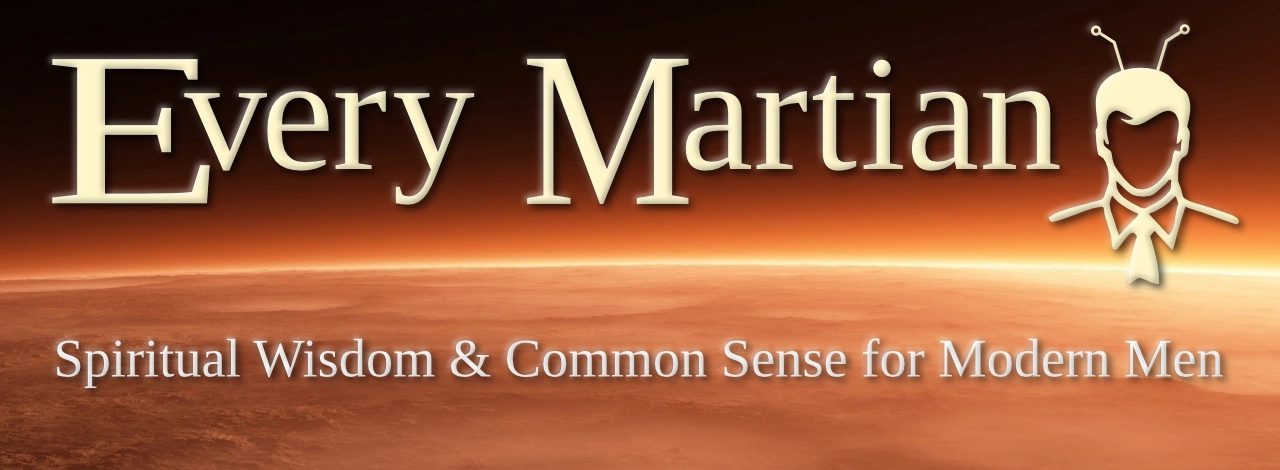Is Porn Really Okay?
The culture for the last 75 years has been telling us that fantasy and masturbation is just part of normal Male sexual behavior. It is just the way we are made, and everybody does it. So, don't worry about it.
Beginning with the Kinsey Reports: "Sexual Behavior in the Human Male (1948)" and then continuing with Hugh Hefner's publication of Playboy (1953) pornography and self-pleasure aspects have slowly and steadily moved from the realm of taboo into everyday themes of television, movies and now, even into elementary school curriculums.
However, is the normalization of porn, masturbation and fantasy improving civilization or is it hindering the depth of personal relationships, warping our perceptions of human value and negatively impacting our self-worth?
A Christian Perspective
From a Christian perspective, sexual behavior is not just a physical act, but also a spiritual one that involves the whole person. The Bible teaches that sexual intimacy is a gift from God that is meant to be enjoyed within the context of marriage between one man and one woman (Genesis 2:24; Matthew 19:4-6). Any sexual behavior outside this context is considered sin (1 Corinthians 6:18; Hebrews 13:4).
Pornography, which involves lusting after someone who is not one's spouse, is condemned by Jesus himself as equivalent to adultery (Matthew 5:27-28). It objectifies and degrades human beings, turning them into mere objects of sexual pleasure rather than treating them as persons with inherent dignity and worth (Genesis 1:27).
Furthermore, numerous studies and surveys have shown that even practicing Christians are not immune to the lure of pornography, and can be just as likely to consume porn as non-religious individuals.[1] However, the good news of Jesus Christ is that freedom is possible for the pornography-addicted man or woman in Christ.[2] Nevertheless, one in six young Christians aged 18-24 have reported feeling addicted to pornography.[3]
Pornography creates an addictive cycle that can lead to a distorted view of sex, relationships, and oneself, and can harm not only the person consuming it but also others around them, including their spouse, children, and society as a whole. Sexual sin damages a person's ability to relate to God and others, enslaving and damaging the person's character and relationships.[4] Pornography is a form of idolatry that enslaves the heart and blinds the eyes. It promises pleasure but delivers only emptiness and shame, violating the sacredness and beauty of God's gift of sex.[5]
A Secular Perspective
From a secular perspective, sexual behavior is seen as a natural and healthy part of human life, and as long as it is consensual and does not harm others, it is generally considered acceptable. Masturbation and porn consumption are often viewed as harmless and even beneficial activities that can improve sexual satisfaction, relieve stress, and provide a safe outlet for sexual desires.
However, recent scientific research has shown that pornography consumption can have negative effects on the brain and the body. One study found that frequent pornography use can lead to desensitization and habituation to sexual stimuli, making it more difficult to achieve sexual arousal and satisfaction in real-life situations.[6] Another study showed that excessive masturbation can lead to sexual dysfunction and decreased sexual satisfaction.[7] In addition, some studies have linked pornography consumption to increased aggression and objectification of women.[8]
From a spiritual perspective, the Bible teaches that our bodies are temples of the Holy Spirit and should be treated with respect and honor (1 Corinthians 6:19-20). Masturbation and pornography consumption can lead to a devaluation of the body and a separation of sex from its intended purpose within the context of marriage. Furthermore, the Bible teaches that we should guard our hearts and minds from impure thoughts and desires (Philippians 4:8). Consuming pornographic material can lead to the objectification and exploitation of others, and can also create a cycle of addiction that is difficult to break free from.
In summary, while the secular perspective may view masturbation and pornography as harmless and acceptable, the Christian perspective emphasizes the importance of sexual purity and the inherent dignity and worth of every human being. Both scientific and spiritual evidence point to the negative effects of excessive pornography consumption and the need for individuals to guard their hearts and minds from impure thoughts and desires.
Notes:
- Barna Group, "The Porn Phenomenon: A Comprehensive New Survey on Americans and Pornography" (2016) [↩]
- Russell D. Moore, "Why Pornography Is a Gospel Issue" (The Gospel Coalition, 2013) [↩]
- Covenant Eyes, "The Porn Phenomenon: A Comprehensive New Survey on Americans and Pornography" (2016) [↩]
- Timothy Keller, "Sexual Sin: The Cultural Landscape and Christian Witness" (Redeemer Presbyterian Church, 2013) [↩]
- Denny Burk, "A Word to Young Men Who Struggle with Pornography" (The Gospel Coalition, 2015) [↩]
- S. Kühn and J. Gallinat, "Brain Structure and Functional Connectivity Associated With Pornography Consumption: The Brain on Porn," JAMA Psychiatry, vol. 71, no. 7, pp. 827–834, Jul. 2014. [↩]
- K. Saito, M. Sato, and Y. Sasaki, "Excessive Masturbation: The Effect of Behavioral Therapy and the Role of the Clinical Psychologist," Sexologies, vol. 28, no. 1, pp. e1–e5, Jan. 2019. [↩]
- J. R. Bridges, W. A. Wosnitzer, E. Scharrer, C. Sun, and R. A. Liberman, "Aggression and Sexual Behavior in Best-Selling Pornography Videos: A Content Analysis Update," Violence Against Women, vol. 16, no. 10, pp. 1065–1085, Oct. 2010. [↩]
